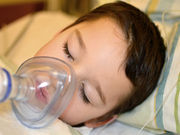Evidence from Middle East literature suggests variability in practices, preferences of truth telling
WEDNESDAY, Sept. 6, 2017 (HealthDay News) — Physicians should be aware of societal codes of conduct that affect family beliefs and behaviors regarding information disclosure to pediatric patients, according to a study published online Sept. 5 in JAMA Pediatrics.
Abby R. Rosenberg, M.D., from Seattle Children’s Hospital, and colleagues discussed the balance of obligations to respect individual patient autonomy, professional truth telling, and tolerance of multicultural values for pediatric clinicians treating seriously ill children. The authors conducted an ethical analysis incorporating evidence from Western and Middle Eastern medical literature and theories of cultural relativism and justice in a hypothetical case example of a Middle Eastern adolescent patient with incurable cancer.
The researchers note that Western medical literature tends to prioritize patient autonomy and corresponding truth telling, while evidence from the Middle East suggests much variability within and between countries, patient-physician relationships, and families with respect to practices and preferences of truth telling. In both populations, protecting the child from distressing information is a common reason for nondisclosure. By forbidding judgment on foreign societal codes of conduct, cultural relativism fosters tolerance of different beliefs and behaviors and does not justify assumptions that all individuals within a single culture share the same values or require clinicians to sacrifice their own codes of conduct out of respect.
“Early setting of expectations and boundaries, as well as ongoing exploration of family and health care professional concerns, may mitigate conflict,” the authors write.
Copyright © 2017 HealthDay. All rights reserved.








